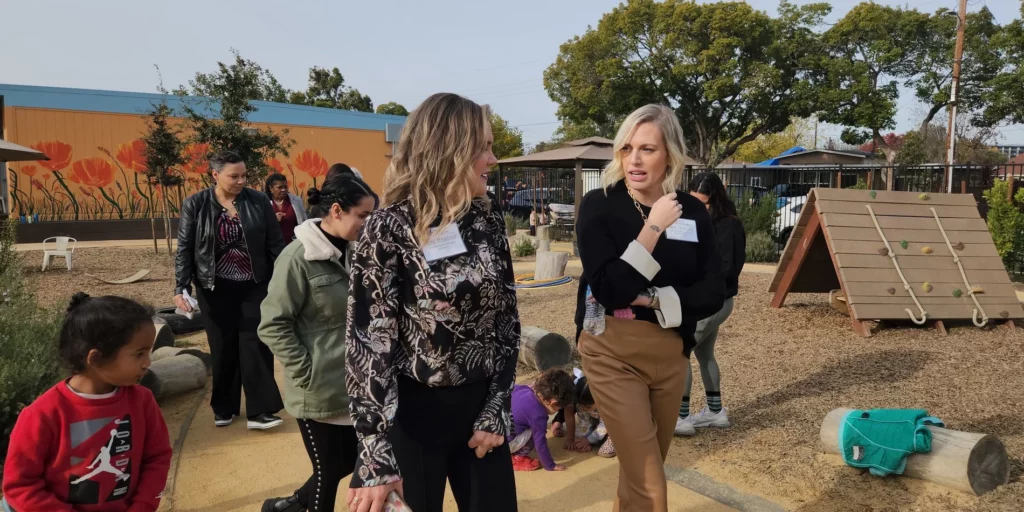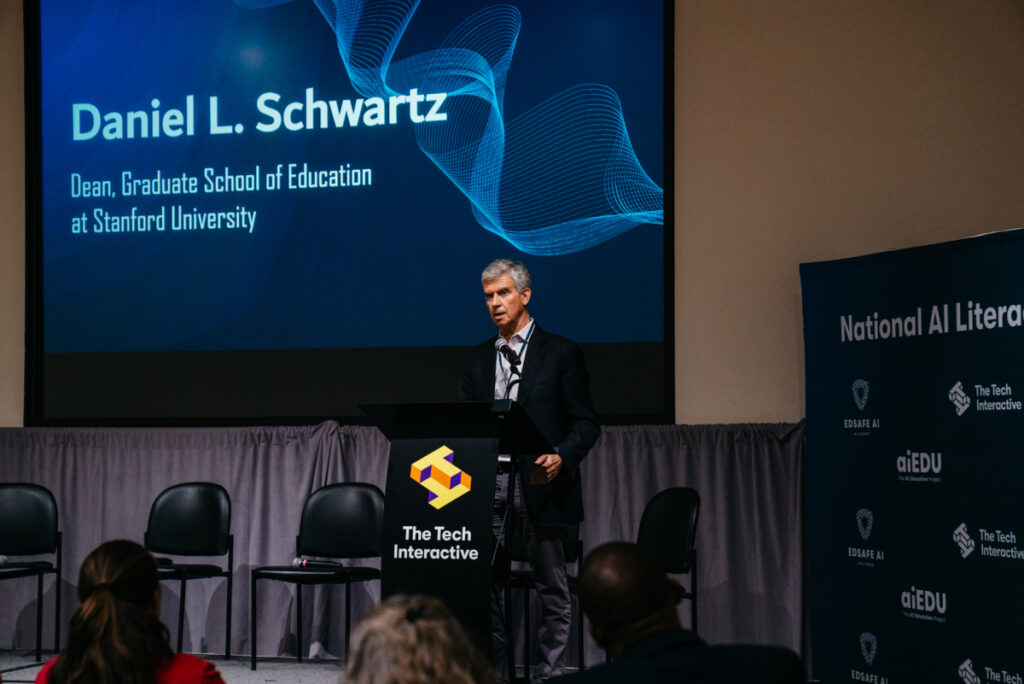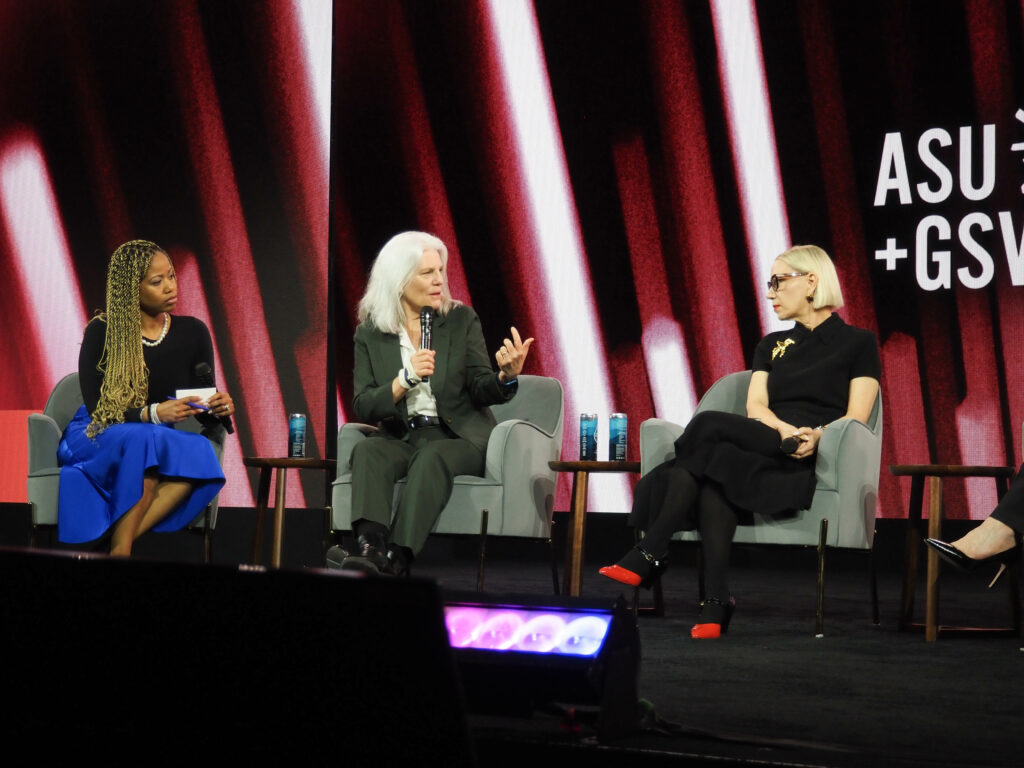State legislators from across the country gathered at Stanford in December to take part in The Hunt Institute’s Early Childhood Policy Academy, a program designed to highlight for policymakers the importance of the earliest years as a public investment.
This is the second time the Stanford Center on Early Childhood co-hosted the three-day event in collaboration with The Hunt Institute and the Saul Zaentz Charitable Foundation.
This cohort of policymakers started out their time in the academy engaging in online modules, discussion boards and virtual sessions, building their understanding of the science and policy of early learning and development. They arrived at Stanford ready to hear from national resource experts about policy solutions to support families with young children and the early childhood workforce in their regions.
Philip Fisher, director of the Stanford Center on Early Childhood, opened the academy by thanking participants for their commitment to improving the lives of young children and families. He said research and policy go hand in hand, and being able to share knowledge is crucial to moving both research and policy forward.
“[It’s] really part of the critical work that’s necessary in order to have the kind of cross communication and information flow so that we can assist with the work that you’re doing,” Fisher said.

"There is a need to make strong investments in the early, formative years of a child's education and raise expectations of early education programs," said Javaid Siddiqi, president and CEO of The Hunt Institute. “The Institute is committed to equipping leaders to make more informed decisions about education, including in the crucial area of early learning."
Attendees had a chance to listen to experts about solutions to many of the problems lawmakers face when working with early childhood policy.
Hawaii’s Lt. Gov. Sylvia Luke spoke with participants about her push in the state for universal access to preschool, called Ready Keiki.
“Private preschools will always find a way to go into areas that parents can pay, but they’re not going to go into areas that you don’t have enough parents to pay and make their business model sustainable,” she told participants. “So the commitment is to build out public preschools where private preschools [can’t go].”
“I know one of the things that all of us understand, is if we can make just small little dents in a child's life,” she said, “it will pay dividends for many of these families.”
Experts also spoke about the early childhood workforce, a group that faces low wages, burnout, and poor working conditions.

“I've found that programs that have been the most successful with staffing have focused their efforts on retention,” said Alissa Mwenelupembe, managing director of Early Learning at the National Association for the Education of Young Children (NAEYC).
“When I was a [child care program] director, my teachers were paid on par with kindergarten teachers in our community,” she said.
But salary isn’t everything, she added.
“What we saw happening when our community moved to a state/public pre-k option, [is that] many teachers decided to leave the early learning programs and go into that public system that paid better, they got their summers off, [and] they had other benefits.”
Mwenelupembe said that when organizations grant access to benefits, including professional development opportunities, support for continuing education, and a supportive work environment, “teachers stay.”

A highlight of the Academy for policymakers was visiting All Five, an early education program in Menlo Park, California. Participants received a guided tour of the center to underscore some of the biggest takeaways of the Academy: the importance of creating a sustainable early childhood workforce, and giving all families, regardless of income, access to a high quality early education program.
In order to remain accessible and keep their doors open, a quarter of families at All Five pay full tuition for their children. The rest of the children come from low-income families who pay little to no tuition. The revenue gap is closed with philanthropic funding. All Five has also trained and hired mothers from the community of East Palo Alto to become early education teachers, investing back in the community.
Carol Thomsen, founder and executive director of All Five, asked legislators to understand that early childhood education is an investment that will be repaid in later years, by making sure children have the skills necessary to navigate adolescence and adulthood.

“Early childhood education is the ultimate unworkable equation,” Thomsen said. “Somebody has to pay, right? It's either the teachers with low wages, the parents, by having to pay tuition, or the state, or a philanthropist.”
“But because brains grow more during our first five years than at any other time,” she said, “we're shaping the future of our world, each and every day in these first five years.”
This story was originally published by the Stanford Center on Early Childhood.



